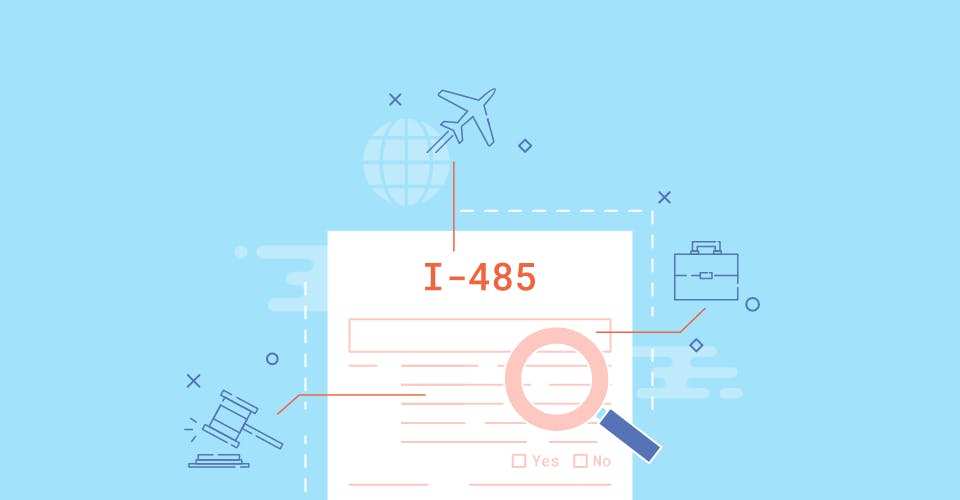The I-485 application is the green card application you will need to complete if you want to become a permanent resident of the United States. The application is long (18 pages in total), has many sections, and is often described by immigration lawyers as one of the most challenging forms to complete, especially for non-native English Speakers. Further, applicants will want to take their time finishing the I-485 because of the filing involved. Applying for a green card usually costs applicants well over $1000 USD.
For these reasons, it is worth examining some key questions that are asked on the I-485 application and how to best answer them. In this blog we will specifically take a look at Section 8 of the application, which is a long section of Yes or No questions that will test an applicant and provide valuable information to the USCIS as to whether the individual is admissible to the United States.
Section 8 Difficulties
The first question that is worth reviewing is Section 8, Question 16, “Have you ever worked in the U.S. without authorization?” Applicants who are filing for a green card come from different backgrounds. Some have previously been living in the U.S. on an employment visa (in which case the applicant will probably never have violated working authorization). However, other applicants might have come to the U.S. via the fiancé visa, or through family. As a general rule of thumb, working without authorization means that you voluntarily worked for an employer:
A. Knowingly, without a work permit.
B. Started working for someone who was paying you “under the table”, and during a period when you never filled out a valid I-9 application prior to your first day of work.
Applicants might also be wondering if doing other small time jobs such as babysitting, cleaning houses, or other labor jobs and being paid in cash constitutes as working without authorization. The IRS notes that this is taxable income that you need to report annually, and therefore omitting this information and working in such a fashion is technically not legal.
The very next question will also bring up some ambiguities for many applicants because of how broadly the question can be interpreted. Question 17, “Have you ever violated the terms and conditions of your non-immigrant status?”
To start off, you might be wondering just exactly what the USCIS is asking when they mention terms and conditions. According to the USCIS, these include:
- Time limitations and not falling out of status
- Full and truthful disclosure of your application materials to the USCIS
- Obedience to all U.S. laws during time of residence/non-immigrant status
- Obedience with agreed upon employment compensation, title, and job description[1]
In addition, if you have immigrated to the United States on an alien immigrant petition, this question need not apply to you and you can simply check the “No” box. This question really only pertains to those who are adjusting their status from H1-B, H2-B, J-1, or K-1 fiancé visas.
J-1 Non-Immigrant Question
Another critical question that is asked in Section is 24a, “Have you ever been a J nonimmigrant exchange visitor who was subject to the 2-year foreign residence requirement?” Basically, one of the conditions of being a J visa holder is that you willingly tell the USCIS upon issuance of your visa that you will return to your country of origin for 2 years once you finish studying in the U.S. In order to bypass this requirement, you need a special waiver from the State Department.
If you are not a J visa holder or studying on an exchange in the U.S., this question will not pertain to you. If it does, and you have received a waiver from the DOS, you should appropriately attach it your application.














